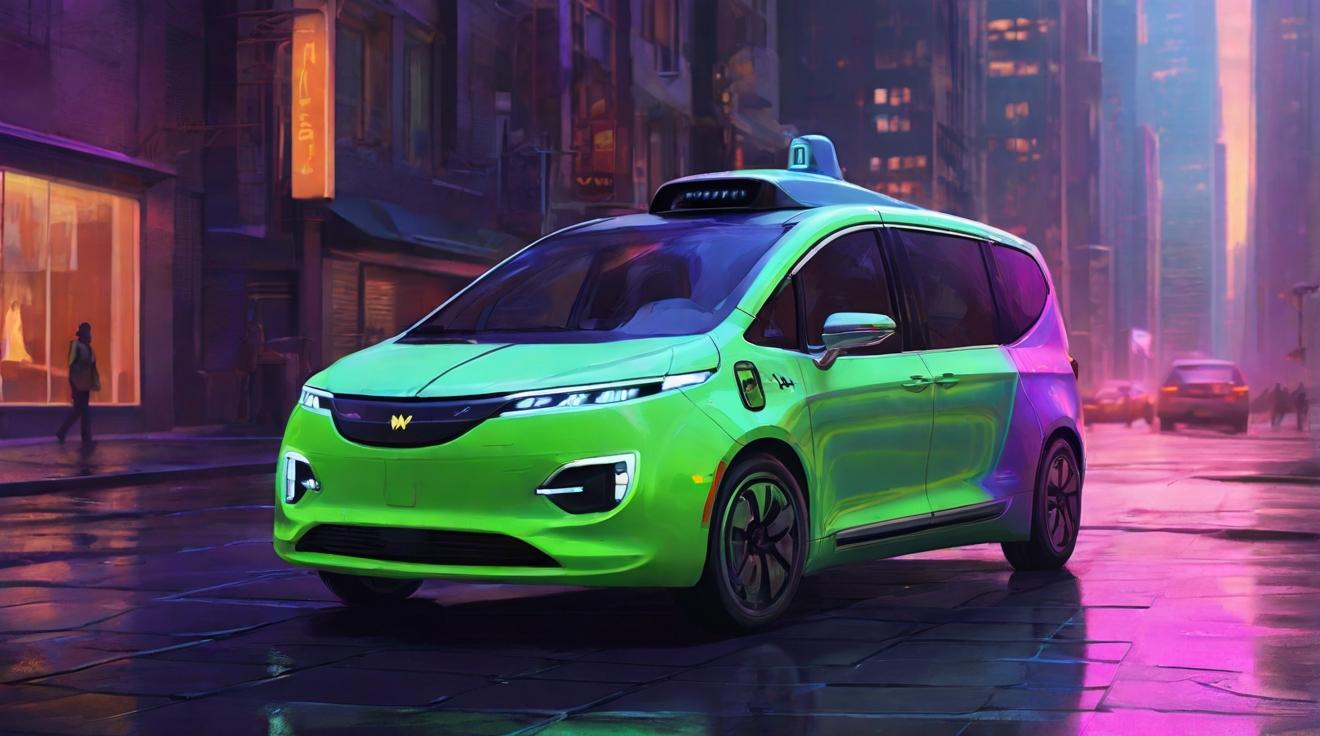Waymo Approved to Operate Robotaxi Service in Los Angeles and San Francisco
In a significant development for the autonomous driving industry, Waymo, the self-driving car division of Alphabet, has been granted approval by the California Public Utilities Commission to operate a commercial robotaxi service in Los Angeles and the San Francisco Peninsula. Furthermore, Waymo can also operate on San Francisco freeways.
The approval from the regulatory body marks a major milestone for Waymo and brings its autonomous vehicle technology one step closer to commercial deployment. With this green light, Waymo will be able to expand its operations and begin offering its self-driving rides to the public in these two bustling metropolitan areas.
In an interview conducted earlier this week, Waymo co-CEO Tekedra Mawakana expressed her enthusiasm regarding the approval, describing it as a testament to the company’s dedication to safety, reliability, and advanced technology. Mawakana highlighted Waymo’s commitment to provide a seamless and efficient transportation experience for users while prioritizing safety on the road.
This news showcases the increasing acceptance of autonomous vehicles as a viable and valuable transportation solution. Waymo has been a frontrunner in the self-driving industry, accumulating millions of miles of test driving and refining its technology over the years. With this approval, Waymo has successfully navigated the regulatory landscape and positioned itself as a leader in the race towards an autonomous future.
Other Exciting Developments in the Electric Vehicle Industry
In addition to Waymo’s approval, there have been several noteworthy developments in the electric vehicle (EV) industry this week.
Ford, a major player in the EV market, has made a groundbreaking move by granting its EV owners access to Tesla Superchargers. This partnership aims to address the issue of limited charging infrastructure and provide greater convenience to EV drivers. By tapping into Tesla’s extensive Supercharger network, Ford aims to enhance the charging experience for its customers, ultimately promoting the adoption of electric vehicles.
However, not all news in the EV industry has been positive. Lordstown Motors, an EV manufacturer, received a blow when it was charged by the Securities and Exchange Commission (SEC) for misleading investors. The allegations raise concerns about the transparency and accountability of the EV sector. This incident serves as a reminder of the importance of integrity and ethical practices within the industry.
Meanwhile, Toyota, a prominent name in the automotive world, is encouraging purchases of its hydrogen fuel cell-powered Mirai. The push towards hydrogen-powered vehicles aligns with Toyota’s commitment to sustainable transportation solutions. The Mirai represents Toyota’s vision for a greener future and showcases their dedication to innovative technologies beyond traditional EVs.
Industry Shifts and Financial Challenges
As the EV industry continues to evolve, some companies are facing transitions and financial difficulties.
Fisker, the EV manufacturer known for its stylish and eco-friendly vehicles, has announced a 15% reduction in its workforce. This move comes as part of a transition and the company’s need for additional funds. Fisker is reportedly in talks with Nissan to explore collaboration on an electric pickup truck, signaling their determination to adapt and thrive in the competitive EV market.
In a similar vein, Polestar, a prominent electric automaker, recently secured a substantial $950 million loan from a dozen banks. This comes after Volvo, Polestar’s parent company, decided to reduce its financial support for the electric automaker. To overcome financial challenges, Polestar has disclosed plans to further reduce its workforce by 15% this year. These measures underscore the need for companies to make strategic adjustments to ensure long-term sustainability and profitability.
Investment and Innovation in the Electric Transportation Sector
Developments in the electric transportation sector continue to attract significant investments and drive innovation.
Range Energy, a company specializing in electric-powered trailers for the commercial trucking industry, has raised an impressive $23.5 million in funding. Led by Trousdale Ventures, this funding round will enable Range Energy to further develop its cutting-edge technologies and revolutionize the trucking industry’s carbon footprint.
Additionally, smartphone giant Xiaomi has made its much-anticipated foray into the electric car market with the introduction of its first electric vehicle, the SU7. Unveiled at the Mobile World Congress, this move highlights Xiaomi’s ambitions to diversify beyond smartphones and disrupt the automotive industry with its innovative approach.
Challenges and Adaptations in the Autonomous Vehicle Sector
The autonomous vehicle sector is not without its challenges and adaptations.
Amidst developments in the self-driving space, Apple has halted its autonomous electric car project. The company has reassigned or let go of staff involved in the project, signaling a shift in focus or potential reevaluation of strategy. This news shines a light on the complex nature of developing autonomous vehicles and the need for careful planning and decision-making.
Similarly, General Motors (GM) has chosen to store its Cruise Origin robotaxis in a closed Michigan plant. This strategic move suggests that GM may be fine-tuning its operations and addressing any technical or operational considerations before deploying its autonomous vehicles on a larger scale.
Furthermore, Motional, a prominent autonomous vehicle technology company, plans to cut approximately 5% of its workforce. The reduction will mainly affect administrative roles and some employees in Boston. This adjustment reflects the evolving needs of the autonomous vehicle industry and the importance of optimizing operations for long-term success.
Amazon’s Ring Car Cam Removed from Market
Lastly, e-commerce giant Amazon has made the decision to discontinue selling the Ring Car Cam. The reasons behind this move have not been disclosed, but it highlights the ever-changing nature of product offerings in the tech industry.
Conclusion
The revelations of Waymo’s approval to operate a commercial robotaxi service in Los Angeles and San Francisco represent a significant step forward in the autonomous driving industry. Waymo’s dedication to safety and reliable technology has paid off, positioning them as a leader in the race towards autonomous vehicles.
Alongside this groundbreaking news, the EV industry has seen notable collaborations, financial challenges, and innovative developments. Companies like Ford and Toyota are actively promoting sustainable transportation solutions, while Fisker and Polestar adapt to transitions and financial hurdles.
Investments in the electric transportation sector, such as Range Energy’s funding, demonstrate the growing interest in sustainable alternatives in the trucking industry. In contrast, Xiaomi’s entry into the electric car market showcases exciting advancements and disruptions to traditional automotive players.
However, challenges persist in the autonomous vehicle sector, with Apple suspending its electric car project and Motional planning workforce reductions. GM’s decision to store its robotaxis suggests a focus on refining operations.
As the industry continues to evolve, it is clear that the landscape of transportation is undergoing a seismic shift, with significant implications for companies, investors, and consumers alike.
Analyst comment
Positive news: Waymo Approved to Operate Robotaxi Service in Los Angeles and San Francisco
As an analyst, I predict that the market for autonomous vehicles will experience significant growth following Waymo’s approval to operate a commercial robotaxi service in Los Angeles and San Francisco. This milestone demonstrates the increasing acceptance of autonomous vehicles, positioning Waymo as a leader in the industry. The approval will lead to expanded operations and the introduction of self-driving rides to the public in these metropolitan areas.













